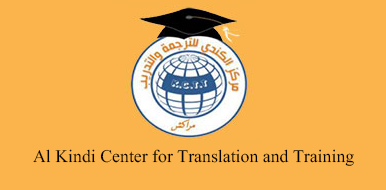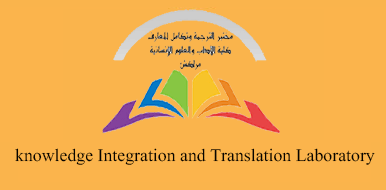Religious Text and Translation 2007
Translation of religious texts remains a central topic not only in applied linguistics, but also in the intercultural and religious dialogue, which has gained urgency more than ever before. People of the scriptures are invited to turn over a new leaf in their relationship with each other). This renewed relationship should be built on wisdom, mutual respect, impartiality thorough knowledge of religious texts and their secrets. Indeed, faithful renderings of religious texts would serve the purpose.
An international scientific symposium was held in March 2007 in the Faculty of Letters and Human Sciences – Cadi Ayyad University. This intellectual gathering came as a response to the aforementioned concerns. The seminar featured eminent scholars from around the world and discussed a diverse and rich array of topics. The seminar was also a platform for both seasoned as well as neophyte researchers to share research findings and engage in serious intellectual dialogue, resulting in the cross-fertilization of academic disciplines.
Some of the major topics and key issues that were addressed during the seminar can be summed up as follows: What are the translation strategies employed in rendering religious texts and how they are used to achieve cross-cultural understanding? To what extent can this type of translation help to avert the clash of civilizations. And how can the current state of knowledge solve problematic issues in rendering these types of texts?
It is noted that different Quran translations, especially those rendered by non-muslims, and even those that have received praise and appreciation have not been exempt from mistakes and even bias. Hence the need for a faithful translation of the Holy Quran,by competent, responsible agents and the observance of conditions necessary to perform such a task which is in fact an exegetic translation that requires various means and tools. The successful rendering of religious texts is conditional on three key competencies: deep knowledge of Quranic studies and Islamic Shari’a and mastery of Arabic language.
The seminar was quite informative and interactive and comprised a number of presentations and workshops.
Opening speeches
Dr. Abdeljalil Hanouch, Dean of Faculty of Letters and Human Sciences – Cadi Ayyad University, Marrakech – Morocco.
Dr. Azzeddine Miar, the president of the scholarly board in Marrakech: “Translating Islamic Texts”.
Presentations:
Dr. Taha Abderrahmane, Mohamed V University in Rabat – Morocco: “The Word of God and Exegetic Translation: Prospects and limitations”.
Dr. Abbas Arhil, Cadi Ayyad University, Marrakech – Morocco: “A Deadlock of Translation”.
Mohamed el Batal, Imam Muhammad ibn Saud Islamic University in Riyadh, Saudi Arabia: “Translation of Holy Qur’an between the Semantic and Communicative Theories”.
Text of the general lecture: “Translation Borders in the Intercultural Dialogue”.
Dr. Ahmed Karroum, Ibn Zohr University, Agadir – Morocco: “Translation of the Meaning of the Holy Qur’an between the Challenges of Terminology and Semasiology”.
Dr. Alhassan Ben Abou, Ibn Zohr University, Agadir – Morocco: “Removing Alienation from the Qur’anic and Islamic Discourse”.
Dr. Sayf Al Islam Ben Abdennour, Ibrahim A’l Zayd Center for Studies and Research: “Religious Translation between the Mediator and the Ideology”.
Dr. Mustapha Toubi, Ibn Zohr University, Agadir – Morocco: “Some Misalignments in the Rhetorical Translation of the Holy Qur’an by Mohamed Hamid Allah”.
Dr. Hafid Ismaily Alaoui, Ibn Zohr University, Agadir – Morocco: “Ibn Hazm and the Translation of Qur’an”.
Dr. Ahmed Jawhari, Mohamed I University, Oujda – Morocco: “The Problem of the Religious Translation: From the Issue of the Impossibility and Faithfulness to the Question of Discourse Categorization”.
Dr. Mohamed Berrada, Abdelmalek Essaâdi University – Tetuan, Morocco: “The Quranic Discourse and the Issues of the Translation: The Spanish Translation as an Example”.
Dr. Ibrahim Rida, Cadi Ayyad University, Marrakech – Morocco: “The Bias of the Orientalist Translations to the Central Western Components in the Study of Religious and Islamic Texts, a Comparison of the Most Obstacles”.
Dr. Idriss Maqboul, Regional Educational Center, Meknes – Morocco: “Translating the Religious Text and the Conceptual form of the World: The Holy Qur’an as an Example”.
Dr. Abdellah ELHALOUI, Cadi Ayyad University, Marrakech – Morocco: “Inaugural Speech of Almutarjim Translation Group”.
Dr. Hussein ABDUL-RAOF, The university of leeds – G.B.: “On the Notion of Equivalence in Qur’an Translation”.
Dr. Christiane NORD, Heidelberg University – Germany: “Communicative Functions across Cultures “.
Dr. Hassane DARIR, Cadi Ayyad University, Marrakech – Morocco: “Ellipsis as a Rhetorical Feature in the Qur’an and the Challenges of Translation “.
Dr. Abdelhamid ZAHID, Cadi Ayyad University, Marrakech – Morocco: “A Model for Metaphor Translation: Evidence from the Holly Qur’an”.
Dr. Abdellah ELHALOUI, Cadi Ayyad University Marrakech – Morocco: “Reflections on the Specificities of the Translation of Transcendental Imagery”
Dr. Abdellah STOTI, Cadi Ayyad University, Marrakech – Morocco: “Can there Be a Compromise in Translation in the Case of Sacredness?”
Dr. Dainora POCIUTE, Vilnius University: “Bible Translations in Lithuania: From Confessionalization to the Ecumenical Bible”.
Dr. Christiane NORD, Heidelberg University-Germany: “Making the Text and its Readers Meet Where Translation Theory Provides Help in the Translation of Sacred Texts”
Dr. Touria UAKKAS, Cady Ayyad Cadi Ayyad University, Marrakech – Morocco: “Translation of the Holy Qur’an and the Reader”.
Dr. Abdellah STOTI, Cadi Ayyad University Marrakech – Morocco: “Internationalism and the Strenuous Exercise of Translation”.

